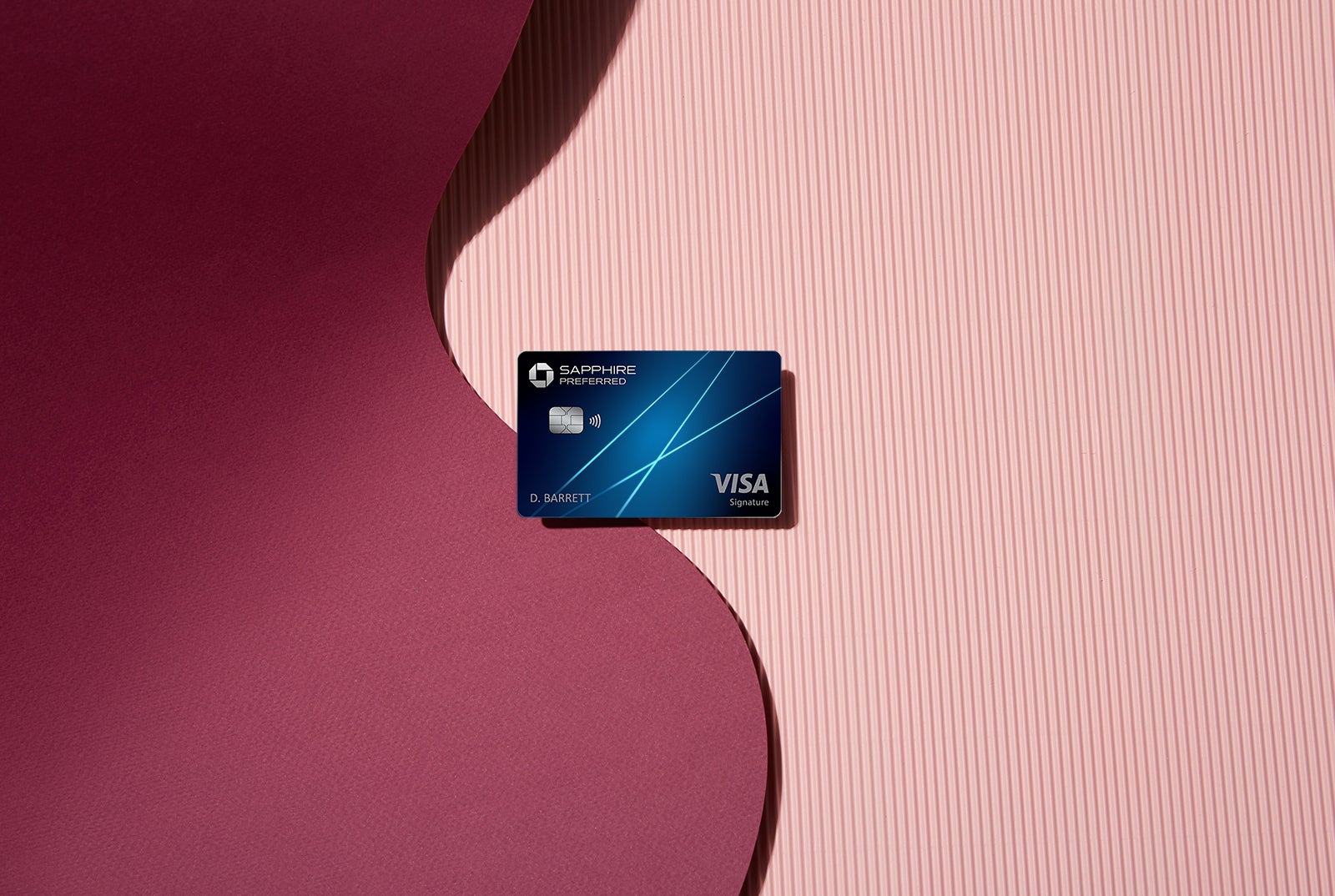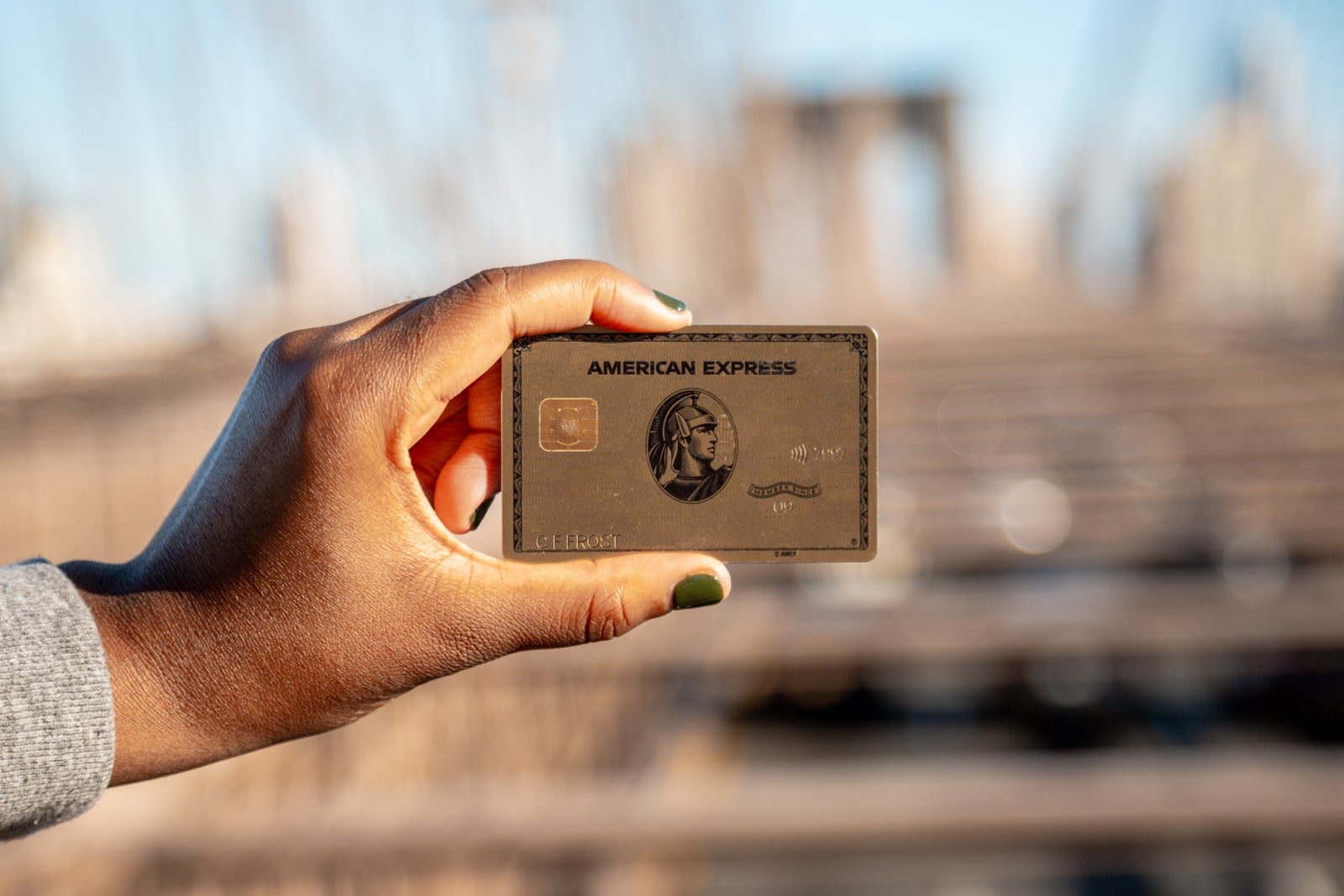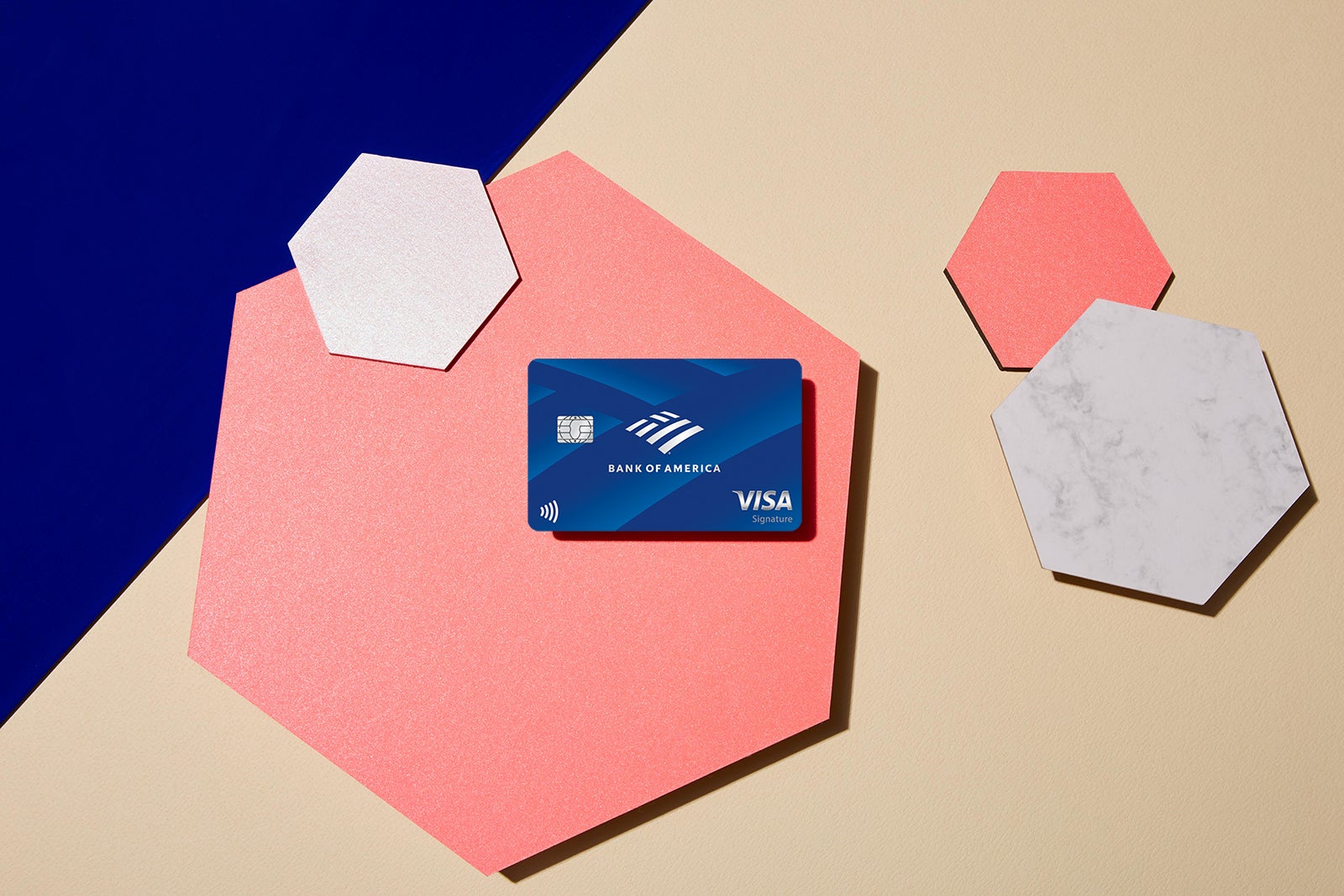Editor’s note: This is a recurring post, regularly updated with new card details and information.
The world of credit cards can seem overwhelming when you’re just getting started. But, if you’re looking to move on from your cash-back card (or even a student card), you’re in the right place. The right starter travel card can offer much more rewarding perks — a rite of passage into adulthood.
With so much information and so many options, how do you know which card to choose? Do you want transferable points? Airline miles? Free nights at a hotel chain?
Analysis paralysis and decision fatigue can really hold you back at the beginning. The key to picking the right credit card is to start by setting your travel goals.
There are no right or wrong answers to these questions — it’s all about what’s important to you. You may even change your mind as you gain experience in the world of points and miles. Once you’ve made your decisions, you can start matching your answers to the right card.
We’ve assembled this list of the best starter credit cards so you don’t end up with rewards that don’t match your goals. We also kept simplicity in mind when compiling this list. None of these cards are tied to complicated, difficult-to-understand programs, nor do they have intimidating annual fees, though they all have the potential for outsized value.
And all of them are worth keeping in your credit card inventory for the long term.
New to The Points Guy? Sign up for our daily newsletter and check out our updated beginners guide.
In This Post
Best starter travel rewards credit cards
- Chase Sapphire Preferred Card
- Capital One Venture Rewards Credit Card
- Citi Premier® Card
- American Express® Gold Card
- Bilt Mastercard®
- Bank of America® Travel Rewards credit card
Related: TPG’s beginners guide to credit cards: Everything you need to know
Comparing the best starter travel rewards credit cards
Here are the key details of the best starter travel rewards cards, including the welcome offers and the key earning features.
| Card | Welcome offer | Bonus categories |
| Chase Sapphire Preferred Card | Earn 60,000 bonus points after spending $4,000 on the card within the first three months of account opening. |
|
| Capital One Venture Rewards Credit Card | Earn 75,000 bonus miles once you spend $4,000 on purchases within the first three months from account opening. |
|
| Citi Premier® Card | Earn 80,000 bonus points after spending $4,000 in new purchases within the first three months of account opening. |
|
| American Express® Gold Card | Earn 60,000 bonus points after spending $4,000 in purchases within three months of account opening — though you may see higher, targeted offers in the CardMatch tool (subject to change at any time). |
|
| Bilt Mastercard® | None. |
|
| Bank of America® Travel Rewards credit card | Earn 25,000 bonus points after spending $1,000 in purchases within 90 days of account opening. |
|
Now, here’s a deeper dive into each of these cards.
The information for the Bilt Mastercard has been collected independently by The Points Guy. The card details on this page have not been reviewed or provided by the card issuer.
Chase Sapphire Preferred Card

Annual fee: $95.
Sign-up bonus: Earn 60,000 bonus points after spending $4,000 on the card within the first three months of account opening.
Why it’s a great starter card: There’s a good reason why the Chase Sapphire Preferred is our top pick for our list of starter cards. In addition to the lucrative welcome offer, cardholders earn 5 points per dollar on travel booked through the Chase travel portal, along with the following:
- 5 points per dollar with Lyft (through March 31, 2025).
- 3 points per dollar on dining, including takeout and delivery, select streaming services and online grocery orders.
- 2 points per dollar on travel.
- 1 point per dollar on all other purchases.
The Ultimate Rewards points it earns are easy to use with 11 airline and three hotel loyalty programs such as United MileagePlus and World of Hyatt. Your points can also be redeemed for 1.25 cents apiece to book flights or rooms at any airline or hotel through the Ultimate Rewards travel portal. Through Sep. 30, 2022, you can use the Chase “Pay Yourself Back” feature to redeem your points at 1.25 cents each to offset purchases made at Airbnb.
Related: Why the Sapphire Preferred should still be the first rewards card in your wallet
The card also comes with terrific travel benefits, including primary insurance when you rent a car and no foreign transaction fees. You’ll also enjoy $50 in annual statement credits for hotel stays booked through Ultimate Rewards, and each year on your account anniversary, you’ll enjoy a 10% points bonus on your spending from the previous year.
When you add in the sign-up bonus of 60,000 points and an annual fee of only $95, you’ve got a card that offers great value, especially if you’re starting in the world of travel rewards.
For more information, read our full review of the Chase Sapphire Preferred Card.
Official application link: Chase Sapphire Preferred Card with a 60,000-point bonus.
Capital One Venture Rewards Credit Card

Annual fee: $95.
Sign-up bonus: Earn 75,000 bonus miles once you spend $4,000 on purchases within the first three months from account opening.
Why it’s a great starter card: Travelers getting started in the points and miles world, or those who aren’t inherently loyal to a single hotel chain or airline, can take full advantage of the flexibility that this card offers.
First, you earn a flat 2 miles per dollar spent on everything, meaning you don’t have to keep track of different spending categories. However, that earning rate jumps to 5 miles per dollar for hotels and car rentals booked through Capital One Travel.
While you won’t get any airline-specific perks such as free checked bags, you do get two passes a year to the new Capital One Lounge (and pay a special rate of $45 per visit after that). This perk was recently extended to Plaza Premium lounges as well. You also get an up to $100 credit to cover the application fee for TSA Precheck or Global Entry as well as automatic Five Star status with Hertz.
Related: 7 reasons to get the Capital One Venture Rewards card
Use your rewards to jump on the cheapest cash ticket to wherever you’re going while still taking advantage of 14 airline partners in all three major airline alliances (Star Alliance, Oneworld and SkyTeam), along with three hotel partners. This card packs a lot in for a $95 annual fee, and it even makes the cut as one of our overall best travel credit cards.
For more information, read our full review of the Capital One Venture Rewards card.
Official application link: Capital One Venture Rewards Credit Card available with 75,000 bonus miles.
Citi Premier® Card

Annual fee: $95.
Sign-up bonus: Earn 80,000 bonus ThankYou Points after spending $4,000 in new purchases within the first three months of account opening.
Why it’s a great starter card: The beauty of the Citi Premier Card is its breadth of bonus categories. The card earns 3 ThankYou points per dollar on air travel, hotels, restaurants, gas stations and supermarkets, helping you to rack up lots of points in no time. When it comes to spending those points, you can transfer them to any of Citi’s 15 airline and two hotel partners.
Related: Chase Sapphire Preferred vs. Citi Premier: Which mid-tier travel card is better?
You can also receive $100 off one hotel stay of $500 or more when booked through thankyou.com (or by calling 1-800-THANKYOU). The card comes with no foreign transaction fees and a $95 annual fee.
For more information, read our full review of the Citi Premier Card.
Official application link: Citi Premier Card with a 75,000-point bonus.
American Express® Gold Card

Annual fee: $250 (see rates and fees).
Welcome offer: Earn 60,000 bonus points after spending $4,000 in purchases within three months of account opening. However, be sure to check the CardMatch tool to see if you’re targeted for an even higher bonus (offers subject to change at any time).
Why it’s a great starter card: The Amex Gold Card is fantastic for anyone looking to leverage their everyday spending for excellent rewards — while also enjoying useful statement credits for things like dining and ride-hailing services. You’ll earn 4 points per dollar at restaurants and on up to $25,000 in purchases per calendar year at U.S. supermarkets (then 1 point per dollar); 3 points per dollar on flights booked directly with airlines or on amextravel.com; and 1 point per dollar on everything else.
Cardholders also receive up to $120 in annual statement credits ($10 per month) toward dining and up to another $120 per year ($10 per month) in Uber Cash toward U.S. Uber rides and Uber Eats orders. Added together, that brings the out-of-pocket cost of the card’s $250 annual fee closer to a mere $10. Enrollment is required for select benefits.
Other perks include access to The Hotel Collection, the Global Assist Hotline, and several shopping and travel protections on the card.
Keep in mind that you could be targeted for a higher offer through the CardMatch tool or referral offers (so check there first). Offers are subject to change at any time.
For more information, read our full review of the Amex Gold Card.
Official application link: American Express Gold Card with a 60,000-point welcome offer.
Bilt Mastercard®

Annual fee: $0.
Welcome offer: None.
Why it’s a great starter card: Many beginners in this hobby are also paying rent each month. If you pay by bank deposit, cash or check, your landlord shouldn’t charge you a fee. Paying your rent by credit card often involves fees, but that’s not true with the Bilt Mastercard. The Bilt card even works with landlords who don’t accept credit card payments, so you can earn points without paying a fee.
However, you need to make at least five transactions on your card each month to earn rewards, which come at the rate of 1 point per dollar on rate and everyday purchases, 2 points per dollar on travel and 3 points per dollar on dining.
Additionally, the card offers several perks like trip cancellation and interruption reimbursement, trip delay protection, car rental insurance, Lyft credits each month and no foreign transaction fees. The card also offers World Elite Mastercard benefits, including cellphone protection.
Related: Should you use the Bilt Mastercard? Why it could be a game changer for renters
The points earned on this card can be transferred to seven airline and two hotel partners. Notably, Bilt is the only permanent transfer partner of American Airlines AAdvantage.
For more information, read our full review of the Bilt Mastercard.
(Editor’s note: TPG founder Brian Kelly is a Bilt advisor and investor.)
The information for the Bilt Mastercard has been collected independently by The Points Guy. The card details on this page have not been reviewed or provided by the card issuer.
Bank of America Travel Rewards credit card

Annual fee: $0,
Welcome offer: Earn 25,000 bonus points after spending $1,000 in purchases within 90 days of account opening.
Why it’s a great starter card: For beginners, points and miles can seem daunting, so it’s good to have a card that offers an unlimited 1.5 points per dollar spent on all purchases without having to worry about different categories (and without paying an annual fee).
What’s more, if you are a Bank of America banking customer, you can earn additional points under the Preferred Rewards program, where members earn a bonus between 25% and 75% on every purchase (depending on your tier). Just note that you’ll need a three-month average of at least $20,000 across your Bank of America and Merrill accounts to qualify.
Related: The best Bank of America credit cards of 2022
The points earned on this card can be redeemed at a flat rate of 1 cent apiece as a statement credit for travel purchases. The card doesn’t charge a foreign transaction fee. Thus, this is a great card for erasing travel purchases you had to pay cash for, such as tours or even the taxes and fees on award flights booked with miles.
For more information, read our full review of the Bank of America Travel Rewards card.
Official application link: Bank of America Travel Rewards credit card with a 25,000-point welcome offer.
How to choose the right starter travel card for you
There is no one-size-fits-all travel card. With so many great options, it can be hard to decide which card (or cards) to get to begin building your credit card portfolio. Make sure you’re choosing a card that fits your spending habits, travel goals and budget.
Start by taking inventory of what categories you spend the most money on each month.
Do you live in a large city where groceries and dining typically make up most of your monthly spending? If so, consider cards such as the Citi Premier or Amex Gold Card that offer rewards across those categories. From there, narrow your options based on your travel goals.
Last, consider your budget. If you don’t think you’ll get more than $250 in value from the Amex Gold every year, maybe the Premier’s lower $95 annual fee is a nice compromise between your travel goals and budget.
At the end of the day, it’s all about considering which cards will give you the most value each year through earned rewards, perks or a mix of both.
Related: Why there’s no such thing as the ‘best’ credit card
What credit score do you need for a travel credit card?
Most travel credit cards require good-to-excellent credit, meaning you’ll want a score over 650, at least. A score of over 700 is ideal.* That’s not to say that you won’t be approved if your score isn’t that high, but it is a good rule of thumb when you consider applying for a credit card.
It may be a bit easier to get approved for one of the cards on this list than luxury cards such as The Platinum Card® from American Express or the Chase Sapphire Reserve. However, you’ll still need to have established credit and a good score to have the best chance of getting approved.
If you don’t currently have a good credit score or lack credit history, you’ll want to build credit with a beginner card, a secured card or by becoming an authorized user on someone else’s card. If your credit score is less than stellar, it’s a good idea to take the necessary steps to improve your score before applying for a travel rewards credit card.
Related: What credit score do I need for the Chase Sapphire Preferred?
Don’t forget about Chase’s 5/24 rule
If you’re still torn about which card to get, it’s worth pointing out Chase’s 5/24 rule, as this can potentially influence your decision. According to this rule, Chase is likely to reject your application if you’ve opened five or more personal cards in the last 24 months across all issuers (although most business cards don’t count toward your total).
Because of this restriction, conventional wisdom is to start by using up your five slots with Chase before moving on to other issuers. When you’re just starting with travel rewards, it can be easy to underestimate the importance of this rule, but Chase offers some of the most valuable travel rewards cards on the market. If you don’t get them first, you might not be able to get them later.
There are times when it makes sense to ignore the 5/24 rule and set off in a different direction, but it’s not a decision you should make lightly. Unless you have a very good reason for looking elsewhere, you should probably start with a Chase card first. And there aren’t many better choices than the Chase Sapphire Preferred.
Related: What to do after you reach 5/24
For more on this rule and rules the banks use for credit card applications, see our guide to credit card application restrictions.
Bottom line
With so many travel rewards cards out there, choosing which one to apply for might seem overwhelming. But you can’t go wrong with any of the choices on this list, as all of the options offer great rewards rates and an introduction to the world of points and miles. So make your travel goals for the year, then use this guide to pick the right card.
Then, make sure you meet the minimum spending threshold on the card. For example, if you graduated from college earlier this year (congrats!) and are soon moving to a new city to start your first job, may want to apply for one of the cards above now to meet the sign-up bonus requirements. You’ll then have a stash of points and miles that can be incredibly useful as you plan your next trip.
Additional reporting by Ryan Smith and Benét J. Wilson.
For rates and fees of the Amex Gold Card, please click here.
Featured photo by Pyrosky/Getty Images
* The Points Guy credit ranges are derived from FICO Score 8, which is one of many different types of credit scores. If you apply for a credit card, the lender may use a different credit score when considering your application for credit.
